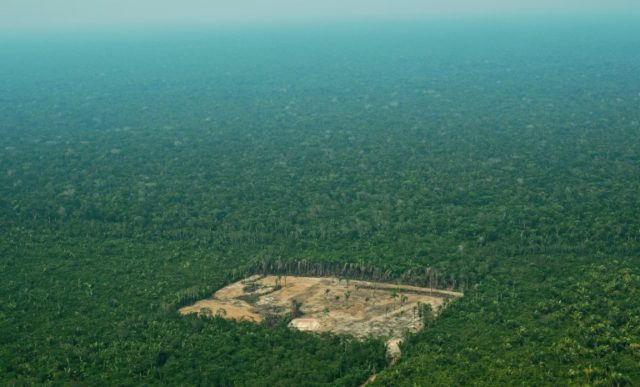Brasília (AFP) – Brazil’s agriculture minister on Friday defended a policy of wanting to develop agribusiness on indigenous lands, and dismissing “hysteria” about the issue of protecting the Amazon rainforest.
Tereza Cristina da Costa told invited foreign journalists in Brasilia that she was “favorable” to opening up indigenous land to business interests, “but the law needs to be changed” to allow that to happen.
She said that past policies of preserving such territory had impoverished communities by preventing development.
One state, Roraima, had “a very serious problem because nearly all of it is marked for preservation, so what can the state live off?”
She added that “we also need to preserve economic activity,” and that environmental conservation should no longer be handled “in an ideological way.”
Costa said criticism that the new government of President Jair Bolsonaro was looking to do away with indigenous lands and territory set aside for the descendants of slaves were “quasi-hysterical” and ignored laws that prevented such moves.
Bolsonaro had created waves on the first day of taking office, January 1, by putting responsibility for the demarcation of indigenous lands under the agriculture ministry, taking it away from a specialized indigenous rights agency.
For many defending indigenous rights, that decision was seen as effectively handing over management of ancestral lands to rapacious agribusiness.
They also viewed negatively the fact that the new agriculture minister was the head of a congressional lobby group representing the interests of big landowners.
Brazilian media have reported on new, illegal confiscations of tribal lands by private individuals since Bolsonaro took power.
Current laws in Brazil require landowners in protected areas to limit commercial exploitation to 20 percent of their property.
Costa noted that, in some cases, the land was not suitable for farming or ranching.
“The Amazon is not good for soya,” she said. “What’s more, a farmer who goes there and buys land is hobbled because he must preserver 80 percent.”
She said: “We want to protect the Amazon. But if the world also wants it to be protected, it needs to bring us viable projects.”

COMMENTS
Please let us know if you're having issues with commenting.